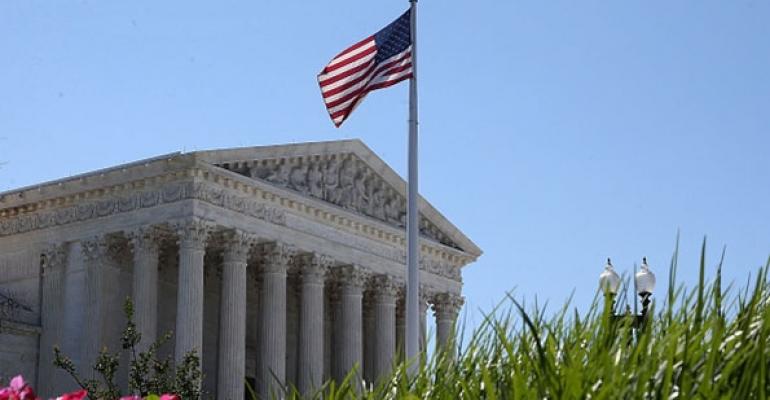(Bloomberg) -- A divided U.S. Supreme Court invalidated a California requirement that charities list the names and addresses of their top donors in filings with the state, saying the rule violates the Constitution’s First Amendment.
The 6-3 ruling is a victory for two conservative groups -- the Thomas More Law Center and the Charles Koch-backed Americans for Prosperity Foundation -- that said the California rule puts their donors at risk of harassment and intimidation.
Although California said it keeps the information confidential, the groups said the state has a history of inadvertently disclosing information. California said any lingering public-disclosure risk doesn’t outweigh the state’s legitimate need for the information to evaluate complaints against charities and investigate instances of fraud.
“California casts a dragnet for sensitive donor information from tens of thousands of charities each year, even though that information will become relevant in only a small number of cases involving filed complaints,” Chief Justice John Roberts wrote for the court.
California was one of four states -- along with New York, New Jersey and Hawaii -- that required charities to provide a copy of their Schedule B, a form organizations routinely file with their federal tax returns. That form generally provides the names and addresses of people who contributed more than $5,000.
Liberal Justices Sonia Sotomayor, Stephen Breyer and Elena Kagan dissented, saying the challengers hadn’t shown the donors wanted privacy or were burdened by disclosure.
“Today’s analysis marks reporting and disclosure requirements with a bull’s-eye,” Sotomayor wrote for the group. “Regulated entities who wish to avoid their obligations can do so by vaguely waving toward First Amendment ‘privacy concerns.’”
The First Amendment showdown drew outsize interest, in part because of its potential implications for political campaigns. Although the California rule applied only to so-called 501(c)(3) charities, advocates of campaign-finance regulation said the case could be a step toward a direct attack on election disclosure laws.
Even so, the challengers had an ideological cross-section of backers that said they have strong donor privacy interests of their own. They included the NAACP Legal Defense and Educational Fund, the American Civil Liberties Union, and the Human Rights Campaign, an LGBTQ advocacy group.
The cases are Americans for Prosperity Foundation v. Bonta, 19-251, and Thomas More Law Center v. Bonta, 19-255.





